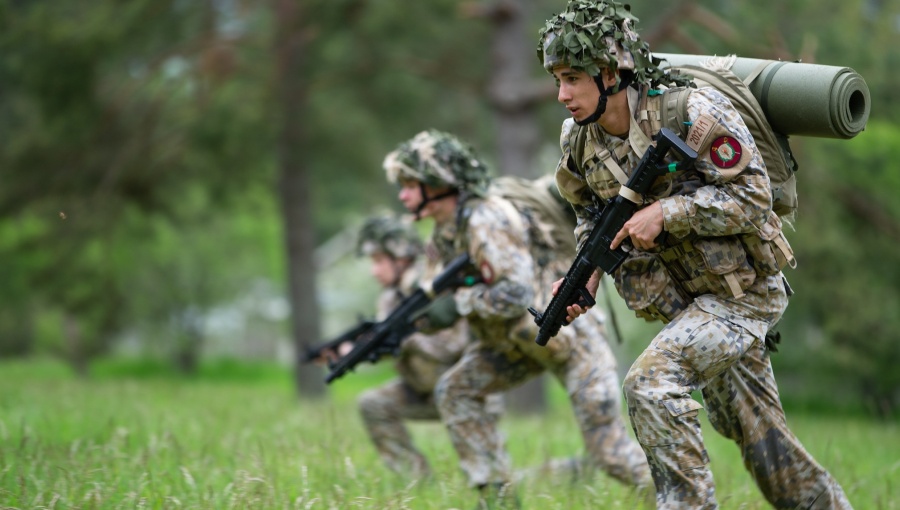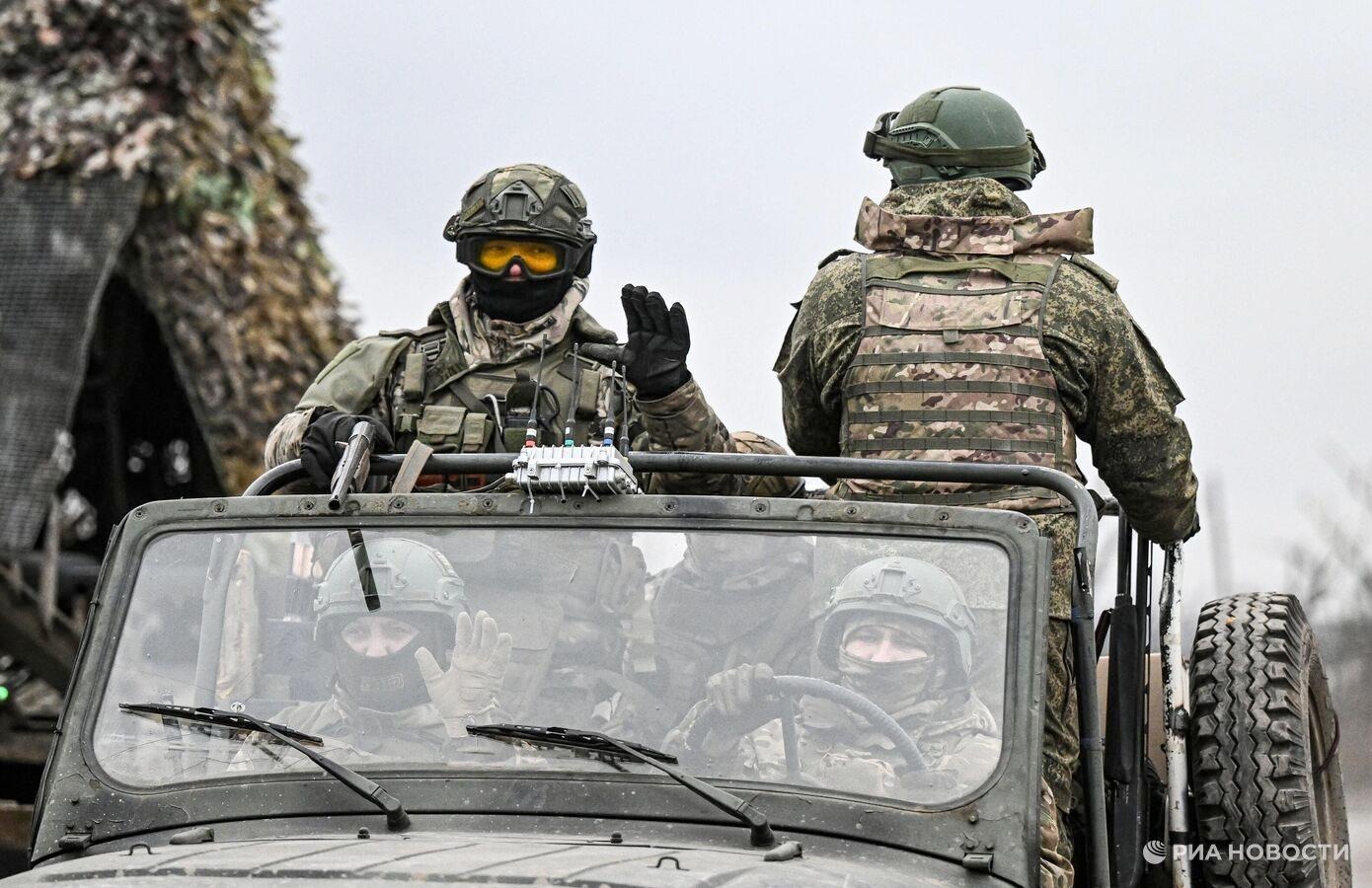
Latvia Reinstitutes Conscription Amid Calls to Strengthen National and Regional Security
Latvia Reinstitutes Conscription Amid Calls to Strengthen National and Regional Security
On April 19, the legislation that provides for Latvia’s return to military conscription came into force as adopted by the Latvian Parliament and ratified by Latvian President Egils Levits (Labdien.lv, April 19). The compulsory National Defense Service will be introduced gradually—the first cohort of enlistees will begin their service on July 1 on a voluntary basis. And from January 1, 2024, onward the service will then become defined as an obligation. This gradual approach is related to the fact that more time is needed to adopt the system for alternative civil service, which will take approximately two years to solidify (Tvnet.lv, April 19). On this, Levits recently declared, “The main task of the National Defense Service is to strengthen Latvia’s defense capabilities, but at the same time, the service is a lesson of patriotism. We need to have a lot more people who know how to handle weapons; it is also a matter of deterring Russia” (Lsm.lv, April 6).
Latvian men who were born after January 1, 2004, will be subject to the National Defense Service. Young people will have the choice to undergo military service in the regular forces, which would last 11 months, or in National Guard units for a total of five years, performing service tasks for no less than 21 days of individual training and no more than seven days of collective training each year. Those who for any legitimate reason would object to military service will have the chance to fulfill their duties through the alternative civil service option. All Latvian citizens—men and women—between the ages of 18 and 27 will still be able to voluntarily apply for military service at any time (Sargs.lv, April 18).
Besides the deteriorating international security situation in the region due to Russia’s full-scale invasion of Ukraine, two main reasons highlight why Latvia has decided to turn back to compulsory military service. The grounds for this decision lie in both the decreasing number of those independently joining the professional service and the extremely low number of trained reserve personnel, which represents a critical weakness in Latvia’s defense and security capabilities. At the moment, only about 6,000 personnel are available in the so-called active reserve, which could be quickly mobilized. In September 2022, the Latvian government supported the Ministry of Defense’s proposal that recommended doubling the number of personnel in the armed forces to 51,000, including increasing the number of reservists to 20,000. To achieve this, plans were presented to train 1,000 conscripts this year, 2,500 next year and up to 7,500 in 2028 (Lsm.lv, February 19, 2022).
When the proposed legislation reached the Latvian Parliament, the number of conscripts had dropped from 500 to 300 persons per year, primarily due to the lack of a civil service law. Although reintroducing conscription took longer than previously planned, the parliamentary secretary of the Latvian Ministry of Defense Jānis Eglītis, believes that it will still be possible to reach the goal of increasing the Latvian Armed Forces to 50,000 personnel in five years. According to Eglitis, “That number is realistic. In the next year, first of all, we need to arrange infrastructure so that we can provide both living conditions for new recruits and a successful training process. So next year is still one for us where we deliver all those things and then start ramping up that number” (Lsm.lv, February 19, 2022).
Glen Grant, defense expert at the Baltic Security Foundation, in an interview with this author, said he doubts whether Latvia will be successful in implementing this concept of strengthening national defense through conscription without any major changes in the training of reservists and the overhaul of the reserve system as a whole. “So far, Latvia failed to manage any solid reserve training for many years until now. Along with the conscription service reintroduced, Latvia also needs a completely renewed model for reserve training. If all the effort of military training will stop on the last day of the person’s conscription time, then it will hardly achieve the ambition of having solid army reserves” (Author’s interview, April 26). Regarding the civil service, Grant believes that the national defense system must be synchronized with the civil defense system, which would make more sense for the civil service and help realize the concept of “comprehensive defense” in Latvia.
In turn, the state secretary of the Latvian Ministry of Defense, Jānis Garisons, believes that the most difficult problem in connection with the introduction of the National Defense Service will be the establishment of specifics for the conscript selection process (Lsm.lv, April 4).
Other changes related to conscription come from amendments to the Law on Remuneration of Officials, as it was established by the Latvian Parliament that soldiers of the National Defense Service are entitled to free health care. Additionally, in the event that a soldier joins the professional service within a year after retiring from the National Defense Service, the time spent in the service will be counted toward receiving their service allowance. Other amendments, this time to the Law on Official Electronic Addresses, provide for the expansion of the official electronic address database, extending it to Latvian citizens—primarily men—from the ages of 15 to 27. Changes to the Law on State Social Insurance state that those who join the National Defense Service will be subject to social insurance, including pension, unemployment, disability, maternity and paternity benefits (Lvportal.lv, April 8).
Meanwhile, support for the compulsory National Defense Service in Latvian society is growing. According to the results of an April 2023 survey, 55 percent of Latvian citizens agreed that a national defense service should be introduced in Latvia, while 60 percent agreed that, to improve Latvian defense and security capabilities, the introduction of such a service would be necessary (Lsm.lv, April 24). Furthermore, currently, the rate of societal interest in joining the army voluntarily seems to be quite good, as approximately 90 applications out of those 300 that are expected to be enlisted have already been submitted (Lsm.lv, April 20).
With Latvia joining Estonia and Lithuania in having compulsory military service, it adds not only to military deterrence against the Russian threat in the Baltic region but also complements the collective capabilities of the North Atlantic Treaty Organization there. At the same time, the re-introduction of conscription is a promising development for the future synchronization and integration of the Baltic states’ defense and security capabilities.


